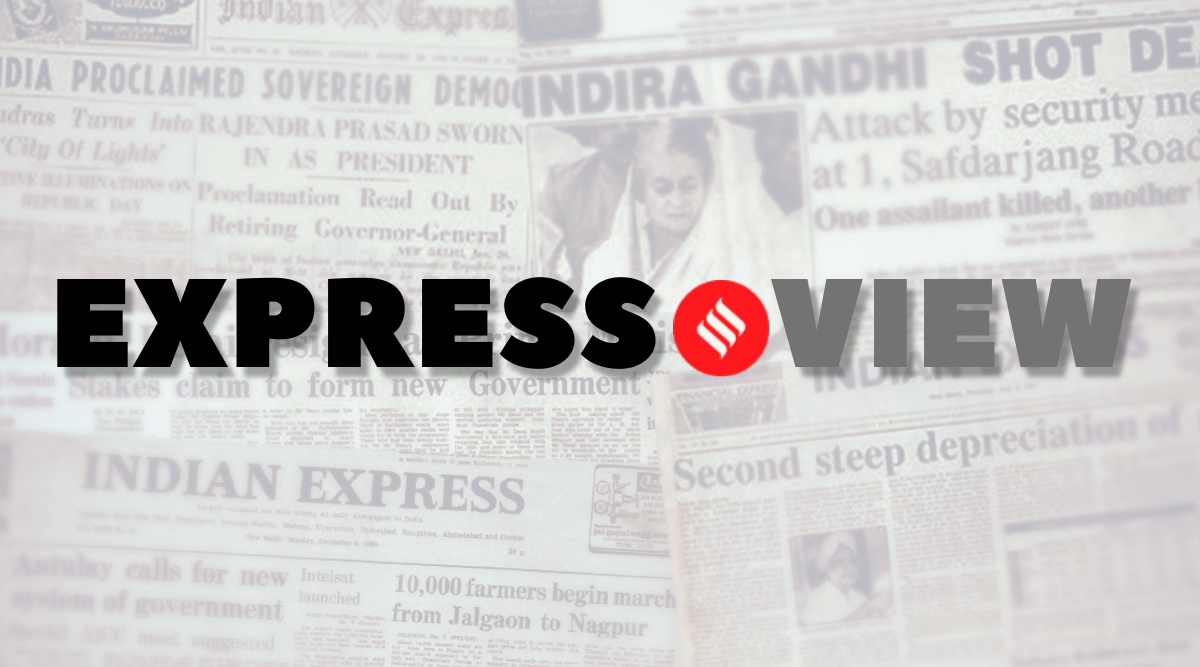Reading the lips of the RSS and its chief is fraught with challenge. The RSS doesn’t speak much, or publicly. And when it does, context is crucial, ambiguities are rife and much can be lost in translation. Ever since the BJP came to power at the Centre with a single-party majority in 2014, and then swept the 2019 election too, the task of decoding the RSS has become even more arduous, and compelling. Sarsanghchalak Mohan Bhagwat’s interview to editors of the Panchjanya and Organiser, both RSS-affiliated journals, is, therefore, a valuable peek into what lies at the heart — and in the mind — of the Sangh Parivar of which India’s ruling party is a member. It shows signs of a softening, as on the question of LGBTQ rights and freedoms. But at the same time, it frames a dialling up of the divide on the Hindu-Muslim issue.
On the first, the RSS chief’s comments – “… we have found a way… to provide them (LGBTQ) social acceptance… they are also human beings having inalienable right to live…” – can be located in a longer process of churn that came to the fore earlier when the Supreme Court decriminalised gay sex in 2018. At that time, and subsequently in a book written by national office-bearer, Sunil Ambekar, The RSS: Roadmaps for the 21st century (2019), the RSS broke a silence when it opposed criminalisation of same-sex relationships even as it maintained its reservation on same-sex marriage. Bhagwat’s statements now can be read as the RSS taking a small, significant step towards tolerance of a sexual minority that faces popular discrimination. This movement forward is in contrast to a troubling move backward, in what Bhagwat said on “Hindu society” in the same interview. His statements about a “war for over 1000 years” are disquieting for their portrayal of a society under siege and engaged in unceasing hostilities within. His saying that it is “but natural for those at war to be aggressive”, and talk of the “enemy within” can be read as justification of perilous majoritarian assertion in a diverse democracy. His advice to Muslims to “abandon their boisterous rhetoric of supremacy” is unwise counsel from someone who speaks to the majority community from a position of great authority.
This is more so when it is Bhagwat himself who, since his outreach via a lecture series in the national capital four years ago, had signalled a Sangh glasnost on the minority question. Compare and contrast what Bhagwat has said on “Muslims” and “Hindu society” now with his tone and tenor last year, addressing a gathering of swayamsevaks in Nagpur. Then, he commented on the Gyanvapi controversy by saying “roz ek jhagda kyun badhana hai (why create daily conflict)”, let there be no more hunts in mosques for “shivlings”. In 2018, he had said “The day it is said that Muslims are unwanted here, the concept of Hindutva will cease to be” and indicated a reading down of MS Golwalkar, who in his “Bunch of Thoughts” called Muslims “shatru” or enemy. Bhagwat’s conciliatory stance in September 2018 came a few months ahead of the 2019 Lok Sabha polls. If his war-like comments now are seen in the context of next year’s general election, the augury of polarisation seems clear — and disquieting. Bhagwat should not turn the clock back on a forward movement he threw his weight behind.
#RSS #chief #Mohan #Bhagwats #comments #Hindusatwar #turn #clock
